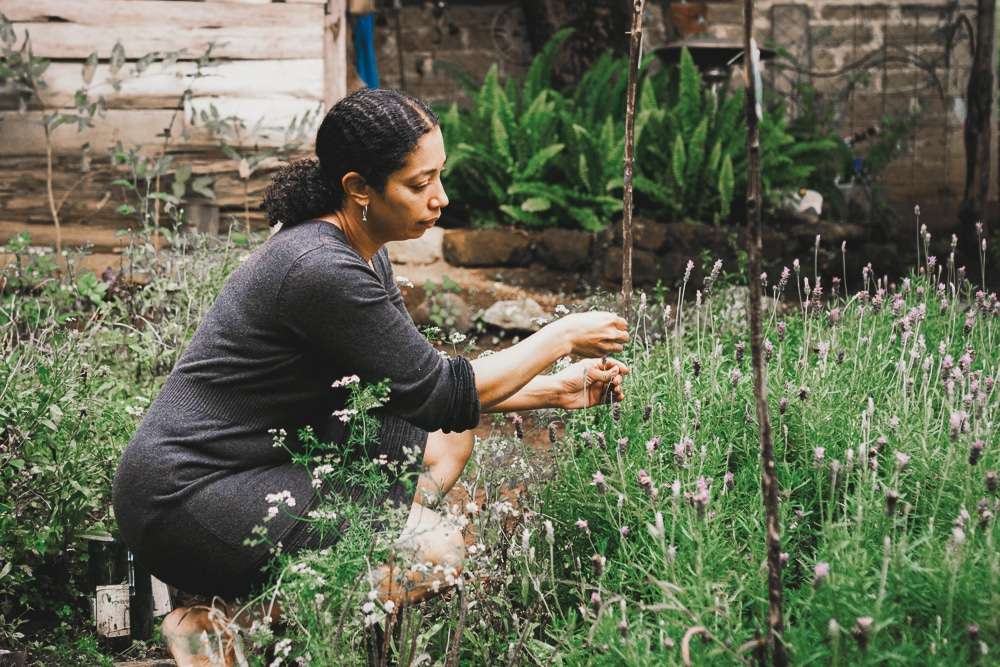Clean, plant-based, sustainable, and cruelty-free beauty is a given these days. When setting out to create a beauty brand, these five female founders saw the opportunity to use the beauty industry as a vehicle for social change.
From creating cooperatives in Ghana to employing former sex traffick victims in Bangladesh, these entrepreneurs who make their products available on the fair-trade beauty marketplace Beautyologie, are changing the world for the better.
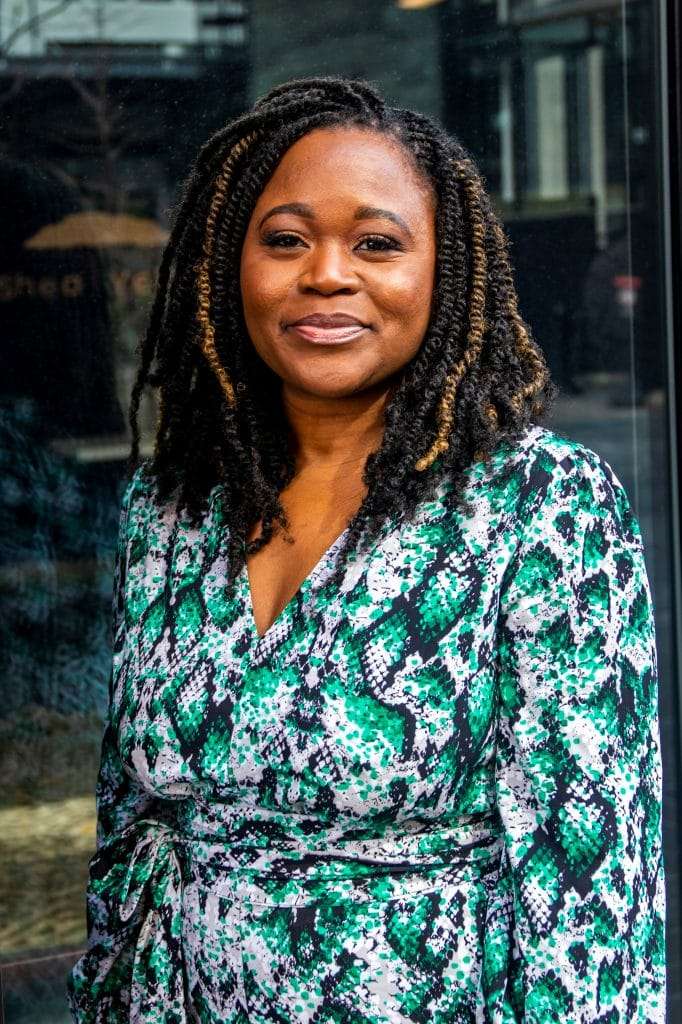
Rahama Wright, Shea Yeleen
In 2003, Rahama Wright spent two years as a Peace Corps volunteer in Mali, and learned about the important West African natural resource, Shea. Rich in fatty acids and vitamins, Shea butter is one of the most nourishing skin moisturizers and is found in hundreds of skincare products today. Traditionally, the laborious production of shea butter from the seeds of the shea tree is considered women’s work. However, Wright quickly realized that only ten percent of Shea butter that enters the global marketplace is made in Africa, even though 100 percent of Shea grows in Africa. This is due to large global corporations cutting out the women’s ability to partake in the supply chain. Instead, they export the seeds and process them in their own refineries.
During her time in Africa, Wright lived in a rural village with no running water or electricity and witnessed the community women struggling with poverty despite having access to a natural resource that is quite literally the engine for a multi-billion-dollar industry.
This is what inspired her to create a fully supported cooperative for the women in this village. Through training and access to production equipment, Wright now empowers 800 women to create a high-quality product that they have control over selling on their own. They receive five times their living wage in Africa for their Shea butter, which is used to formulate Wright’s skincare brand Shea Yeleen.

Cathy Gomes, 700 Rivers
A first-generation American born to Bangladeshi parents, Cathy Gomes is passionate about employing women with equal opportunities. Growing up she was always mindful of her fortunate circumstances to focus on her studies instead of survival like so many women do in her family’s impoverished homeland. Due to a lack of funds and education, thousands of women are stuck in human trafficking.
The best way to help these women escape their unfortunate situation is through meaningful, fairly paid work. Gomes created 700 Rivers, a natural, ethical and sustainable bath and body brand handcrafted by artisans who are overcoming oppression. By employing Bangladeshi artisans that have escaped human trafficking, Gomes provides them a fresh start in life by teaching them new job skills, employing them with fair, living wages, and providing a safe environment where they can work with dignity.
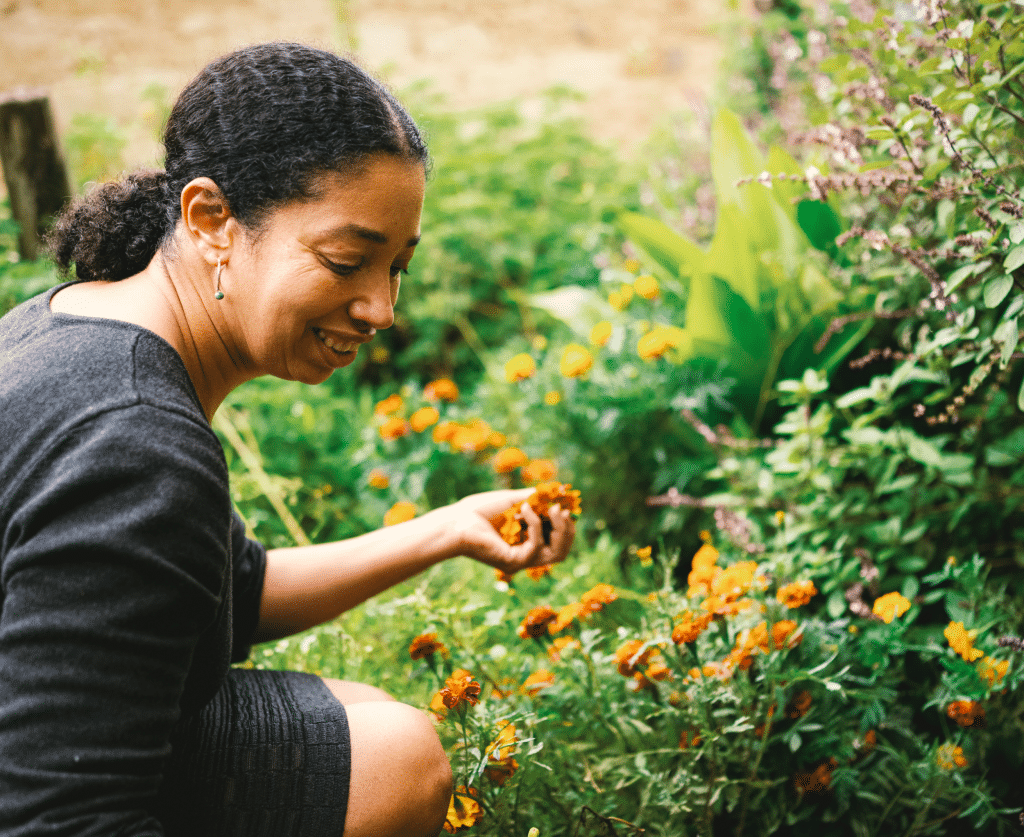
Lucy Ashman, Tierra & Lava
Situated in Antigua, Guatemala, botanical formulator Lucy Ashman creates the natural skincare brand Tierra & Lava which is rooted in the ancient Mayan healing wisdom of her surroundings. All of the ingredients used in her recipes including Mayan Black Salt and Copal—an indigenous tree resin similar to amber—are locally sourced by a small collective of farmers she pays an above-market value living wage.
Ashman believes in a triple-bottom-line business, which is a sustainability framework that measures a business’s true success through three main areas: profit, people, and the planet. By committing to measure their social and environmental impact in addition to her profit, Ashman ensures that the production and sale of her Fair-Trade Certified face serums, soaps, and body balms are creating a positively impactful circular economy.
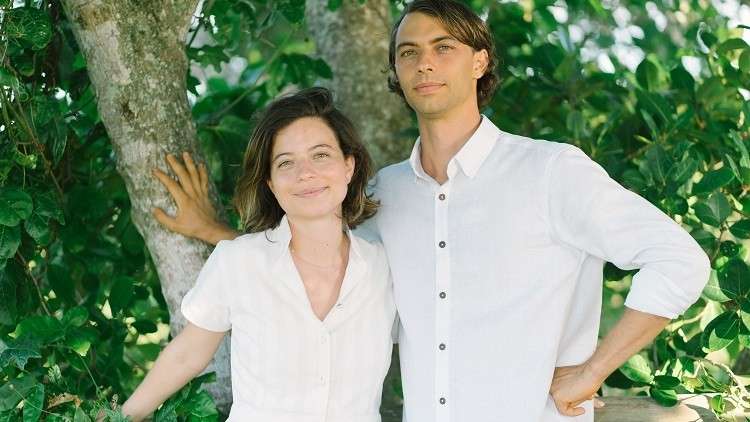
Elah Barshi, Moringaia
Growing up in the Dominican Republic, Elah Barshi and her family was privy to the amazing benefits of Moringa Trees. Known locally as El Árbol De La Libertad (Tree of Liberty), Moringa trees provide shade, attract pollinators, and hold the earth to avoid mudslides. They have been praised for their traditional use as food and medicine (Moringa leaves and seeds are also packed with rich nutrients) for over a century, yet their popularity is only starting to resurface.
Due to these trees’ immense benefit to both people and the planet, more Moringa trees needed to be planted. So, along with her industrious family members, Barshi set out to make a product that would create a demand for Moringa in rural communities. Together with her brother, Ben-Yam, they founded Moringaia, a mission to end deforestation and regenerate the soil.
The more Moringa trees are picked, the more flowers they produce. The more they produce, the more people will want to plant it, and the more the farmers and the earth will prosper.
Following their core mission to end deforestation by helping plant more trees and regenerate the soil we live on, Moringaia Skin Care was born eight years later. Making nourishing and truly natural skincare from the Moringa trees, is the means that allows the Barshis to fulfill this vision.
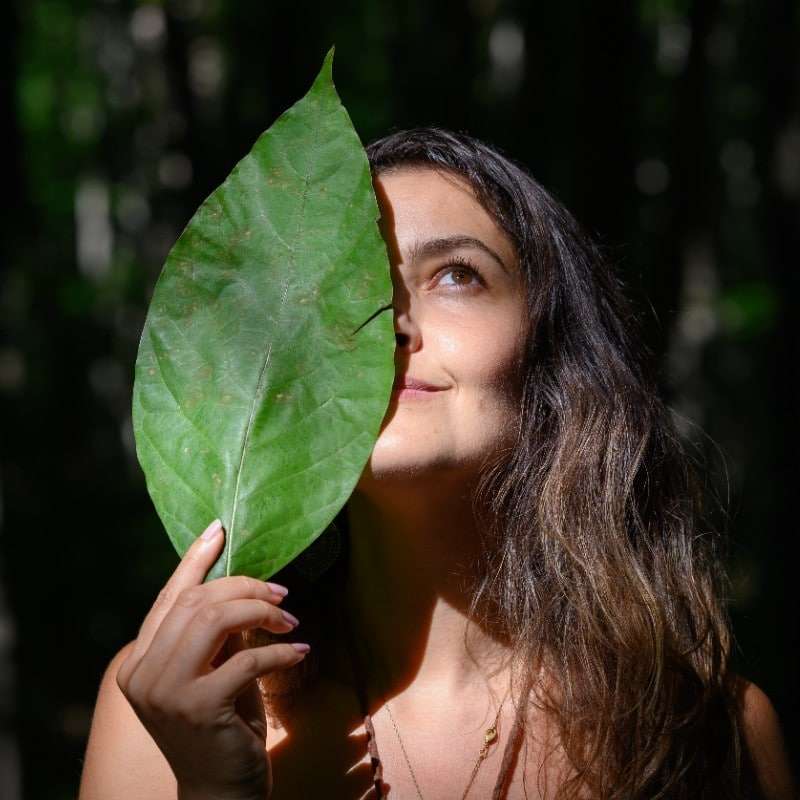
Rose Correa, Amazonian Skinfood
As a child growing up in Santa Catarina, Brazil, near a botanist, Rose Correa saw the Amazon rainforest as her neighborhood’s “pharmacy.” Instead of consulting with doctors or dermatologists, she would reach into the jungle’s natural medicine cabinet whenever she needed to treat her skin, hair and heal any wounds. This shorthand on the power of healing plants coupled with a built-in knowledge surrounding the economic impact ethical agroforestry plays in supporting the traditional communities of her birthplace is the foundation for Amazonian Skinfood.
Correa works closely with local, indigenous communities of the Amazon to sustainably harvest the ingredients she uses to formulate her skincare products. Sacha Inci, an ancient seed from the forest, is the richest plant-based source of Omega 3 fatty acids and helps reduce fine lines and wrinkles. Cacay, another Amazonian Skinfood ingredient, has eight times more retinol than Argan oil.
Amazonian Skinfood is a member of Origins Brasil, a network that promotes sustainable business in the Amazon in priority conservation areas, with a guaranteed origin, transparency, traceability of the production chain, and promoting ethical trade.
For more great female beauty founders, visit Beautyologie’s website.
Related on Ethos:
All products featured on Ethos have been independently selected by our editorial team. When you buy something through our links, Ethos may earn an affiliate commission.

